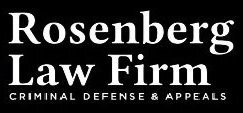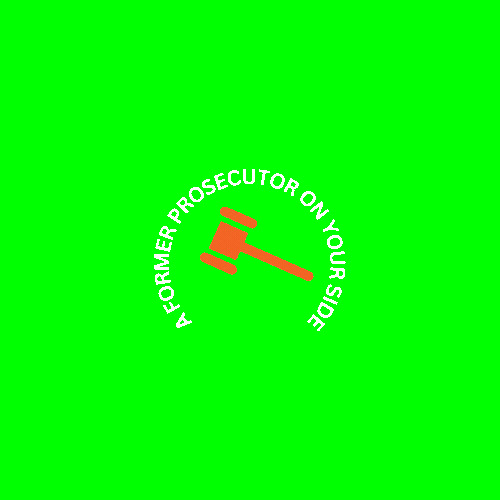Best Appeal Lawyers in Brooklyn
Share your needs with us, get contacted by law firms.
Free. Takes 2 min.
List of the best lawyers in Brooklyn, United States
About Appeal Law in Brooklyn, United States
An appeal is the legal process used to challenge a court decision when one party believes an error of law, procedure, or fact affected the outcome. In Brooklyn - Kings County, New York - appeals arise from state and federal trial courts. State appeals typically move from Kings County trial courts to New York State appellate courts - most commonly the Appellate Division, Second Department - and, in some cases, to the New York Court of Appeals. Federal cases filed in the Eastern District of New York, which includes Brooklyn, move to the U.S. Court of Appeals for the Second Circuit and potentially to the U.S. Supreme Court. Appeals focus on the trial record and legal arguments rather than re-trying facts or presenting new witness testimony.
Why You May Need a Lawyer
Appeals involve strict procedural rules, technical writing, and an emphasis on legal standards of review. You may need a lawyer if you are facing any of the following situations:
- You received an unfavorable jury verdict or judge decision in a civil lawsuit and want to challenge legal errors that may have affected the outcome.
- You were convicted of a crime or received a sentence you believe is unlawful or excessive and want to pursue a criminal appeal.
- A motion or application was denied in family court, housing court, or administrative proceedings and you want to challenge the denial.
- Important evidence was excluded at trial, jury instructions were incorrect, or the judge applied the law improperly.
- You need help preserving appellate issues, preparing the record on appeal, or drafting persuasive appellate briefs and oral argument.
- You are indigent and need assistance obtaining transcripts, filing fee waivers, or representation under appointed counsel or legal aid programs.
Local Laws Overview
Key aspects of local and state procedure relevant to appeals in Brooklyn include:
- Jurisdictional path - State civil and criminal trial courts in Kings County feed appeals primarily to the Appellate Division, Second Department. Some lower-court appeals in New York City go to the Appellate Term of the Supreme Court. Federal cases originating in the Eastern District of New York move to the U.S. Court of Appeals for the Second Circuit.
- Deadlines and timeliness - Appeals are subject to strict filing deadlines. In civil matters, the time to file a notice of appeal generally starts when a judgment or order is entered and served or when notice of entry is served; in criminal matters, appeals and post-conviction motions have their own strict timelines. Missing a deadline can forfeit your right to appeal, so prompt action is critical.
- Preservation of issues - Appellate courts generally review issues that were raised and preserved at trial. Failure to object or raise an issue in the trial court may prevent appellate review unless the issue falls within narrow exceptions such as plain error.
- Record on appeal - Appeals are decided based on the record produced at trial - transcripts, exhibits, and filings. Appellate courts do not typically hear new testimonial evidence; requests for new evidence require specialized procedures and strong justification.
- Standards of review - Different issues receive different standards of review. Questions of law are reviewed de novo; factual findings are reviewed for clear error or sufficiency of evidence; discretionary decisions are reviewed for abuse of discretion. Understanding which standard applies is essential when framing appellate arguments.
- Fees, transcripts, and printing - Appellate practice often requires preparing and filing copies of the trial transcript and producing a printed appendix or record. These requirements can generate costs - fees for transcripts, filing fees, and printing. Indigent litigants may qualify for fee waivers or public representation.
- Remedies and outcomes - Appellate courts can reverse, modify, or affirm lower-court decisions; they can order retrials, remand for further proceedings, or direct the entry of judgment in certain circumstances.
Frequently Asked Questions
What is the difference between a trial and an appeal?
A trial decides facts and applies the law to those facts. An appeal reviews whether legal or procedural errors occurred that affected the trial outcome. Appeals rely on the existing trial record and focus on legal argument rather than presenting new evidence or re-trying credibility questions.
How long do I have to file an appeal in Brooklyn?
Deadlines vary by case type. Civil appeals and criminal appeals have different timelines and calculating the deadline often depends on when the judgment or sentence was entered and served. Because the timelines are strict and technical, contact an attorney immediately to determine the exact deadline for your case.
Can I raise new issues on appeal that were not raised at trial?
Generally no. Appellate courts expect issues to have been raised and preserved at trial. Unpreserved errors can sometimes be reviewed under narrow exceptions like plain error or in the interest of justice, but those exceptions are limited and not guaranteed.
Will I get a new trial on appeal?
Not typically. Appellate courts may reverse and remand for a new trial if legal errors require it, but they do not conduct new trials themselves. Remedies depend on the nature and severity of the error.
Do I need an appellate lawyer or can my trial lawyer handle the appeal?
Trial lawyers can sometimes handle appeals, but appellate practice requires specialized skills - drafting appellate briefs, understanding standards of review, and preparing oral argument. Many attorneys refer appeals to lawyers who focus on appellate litigation. Consider experience and familiarity with appellate courts when choosing counsel.
What happens in a written brief and oral argument?
The appellant files a brief arguing why the lower court erred and what relief should be granted. The appellee files a response brief. Appellate courts may schedule oral argument where attorneys present highlights of their briefs and answer judges' questions. Not all appeals receive oral argument; courts may decide on written submissions alone.
Can I appeal a guilty plea?
Appeals from guilty pleas are possible but limited. Some claims arising from a plea may be waived unless there was ineffective assistance of counsel, lack of jurisdiction, or the plea was not knowing and voluntary. Post-conviction motions may be another avenue to challenge a plea-related issue.
What are post-conviction remedies after a criminal conviction?
Beyond direct appeal, convicted defendants may pursue post-conviction relief in the state courts to raise issues like ineffective assistance of counsel, newly discovered evidence, or jurisdictional defects. After exhausting state remedies, federal habeas corpus review may be available in limited circumstances.
How much does an appeal cost?
Costs vary widely. Expenses can include filing fees, transcript fees, copying and printing costs for the record and briefs, and attorney fees. Public defenders, legal aid organizations, or court fee waivers may help eligible indigent litigants. Discuss costs and fee arrangements with potential counsel early.
How do I find the right appellate lawyer in Brooklyn?
Look for attorneys with appellate experience, knowledge of New York appeals practice, and familiarity with the Appellate Division, Second Department, and relevant local rules. Ask about their appellate briefing and oral-argument experience, success on similar issues, fee structure, and whether they will handle oral argument if needed.
Additional Resources
Organizations and offices that can help people seeking appellate assistance in Brooklyn include local court clerk offices, state and federal appellate clerk offices, and legal aid providers. Typical resources to consider are:
- Kings County Clerk and the Kings County Supreme Court clerk for access to case files and procedural questions.
- Appellate Division, Second Department clerk for filing and local appellate rules pertinent to appeals coming from Brooklyn.
- U.S. Court of Appeals for the Second Circuit clerk for guidance on federal appeals from the Eastern District of New York.
- Legal Aid Society and Brooklyn Defender Services for criminal appellate representation or referrals when you cannot afford private counsel.
- New York State Unified Court System help centers and self-help resources for basic guidance about appeals and court procedures.
- Local bar associations, including the Brooklyn Bar Association, for lawyer referral services and pro bono clinics.
- Law libraries and the New York State Law Reporting Bureau for research and access to appellate decisions that may be relevant to your issues.
Next Steps
If you are considering an appeal in Brooklyn, follow these practical steps:
- Act quickly - determine the applicable deadline and start the appellate process immediately. Missing deadlines can forfeit appellate rights.
- Preserve the record - ensure the trial record, exhibits, and transcripts are secured and that any necessary requests for transcripts are filed with the court reporter.
- Gather documents - obtain a certified copy of the judgment, sentencing minutes, calendar entries, and any written orders you intend to challenge.
- Consult an appellate attorney - seek a lawyer who handles appeals to evaluate your case, advise on likely issues to raise, and estimate costs and timelines.
- Explore indigent or low-cost options - if you cannot afford private counsel, contact legal aid organizations, the public defender, or bar association referral services to see if you qualify for representation or fee waivers.
- Prepare for possible remedies - discuss with counsel the remedies you seek - reversal, new trial, resentencing, or remand - and the practical implications of each outcome, including stays of judgment or bail conditions pending appeal.
Remember, appellate practice is technical and time-sensitive. Early and informed action increases the chance of preserving issues and obtaining effective review. This guide provides general information and is not a substitute for personalized legal advice from a qualified attorney.
Lawzana helps you find the best lawyers and law firms in Brooklyn through a curated and pre-screened list of qualified legal professionals. Our platform offers rankings and detailed profiles of attorneys and law firms, allowing you to compare based on practice areas, including Appeal, experience, and client feedback.
Each profile includes a description of the firm's areas of practice, client reviews, team members and partners, year of establishment, spoken languages, office locations, contact information, social media presence, and any published articles or resources. Most firms on our platform speak English and are experienced in both local and international legal matters.
Get a quote from top-rated law firms in Brooklyn, United States — quickly, securely, and without unnecessary hassle.
Disclaimer:
The information provided on this page is for general informational purposes only and does not constitute legal advice. While we strive to ensure the accuracy and relevance of the content, legal information may change over time, and interpretations of the law can vary. You should always consult with a qualified legal professional for advice specific to your situation.
We disclaim all liability for actions taken or not taken based on the content of this page. If you believe any information is incorrect or outdated, please contact us, and we will review and update it where appropriate.









